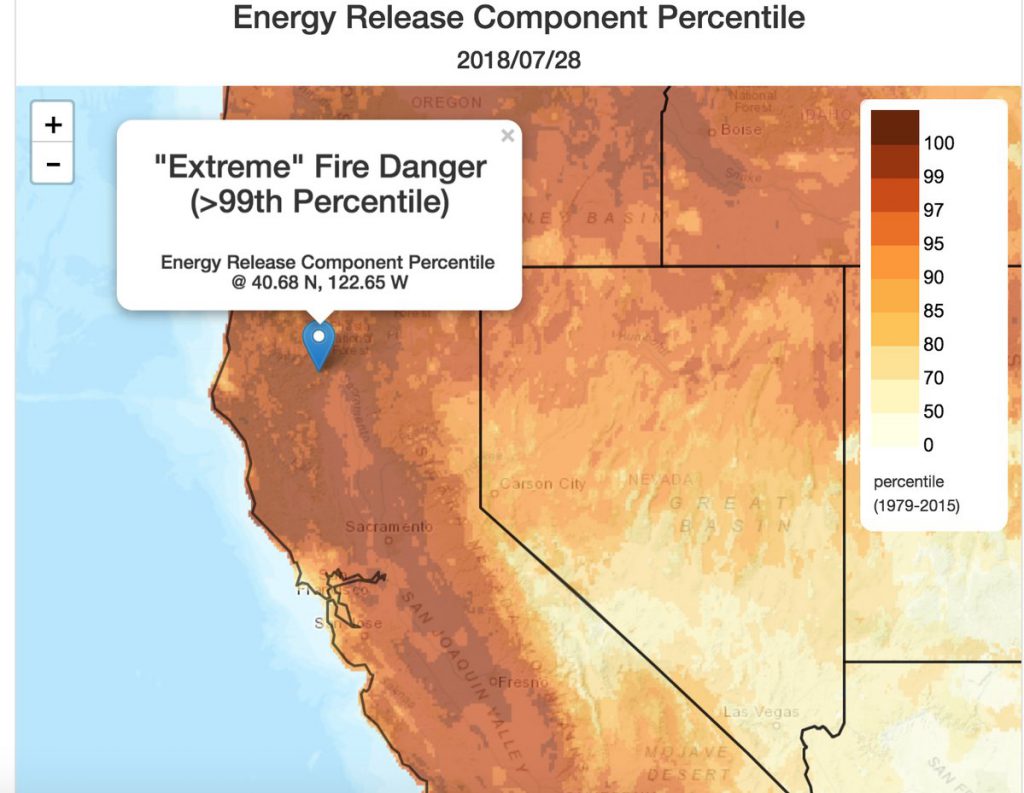

You can see a deeper discussion of climate change's role in recent California fires here.
REVIEW
CLAIM: California wildfires are being magnified & made so much worse by the bad environmental laws which aren’t allowing massive amounts of readily available water to be properly utilized. It is being diverted into the Pacific Ocean. Must also tree clear to stop fire from spreading!
Eric Kennedy, Assistant Professor, York University:
As CalFire has confirmed, water allocations are not influencing how wildfires are being fought in California. There’s enough access to water as it stands, and firefighters are effective in using a wide variety of other methods to augment water: chemical retardants, cutting fire breaks, and lighting backfires, among others. Wildfire has always been—and will always be—a part of North American landscapes, and our history is full of massive conflagrations all over the continent. Instead of water, other issues are far more important: where we build, how we build, how we prepare as individuals and communities, and how we improve our management approaches.
There are a whole host of explicit and implicit assertions in this presidential statement that are problematic. But perhaps the most demonstrably false of these is the notion that California water policy is the cause of the present severe wildfire situation. California has recently been experiencing record-breaking warmth, and the legacy of long-term drought is still apparent across much of the state. Vegetation dryness has approached or reached record levels, which is a direct result of high temperatures and (to a lesser extent) low precipitation. The severity of the ongoing wildfire situation in California can be partly attributed to the long-term warming trend and subsequent extreme dryness of vegetation, as well as the increasing encroachment of urban development into high-risk wildfire zones and (in some places) the legacy of forest management practices over the past century. (See the papers in this thread.)

Why is California water policy essentially irrelevant in this context? First, it’s unclear how water in rivers, lakes, and reservoirs would actually mitigate the vegetation dryness and risk of fire in regions far from these bodies of water. Second, firefighting agencies have virtually unlimited access to existing surface water supplies, and firefighting helicopters and “super scooper” planes have been utilizing just about every available water source in the ongoing firefight (from natural lakes to rivers to man-made reservoirs). CalFire has made it clear that a lack of water for firefighting purposes is not the problem—instead, the agency is struggling to cope with the unusually high number of very large fires and the extreme behavior/rapid rates of spread of those fires currently burning.


